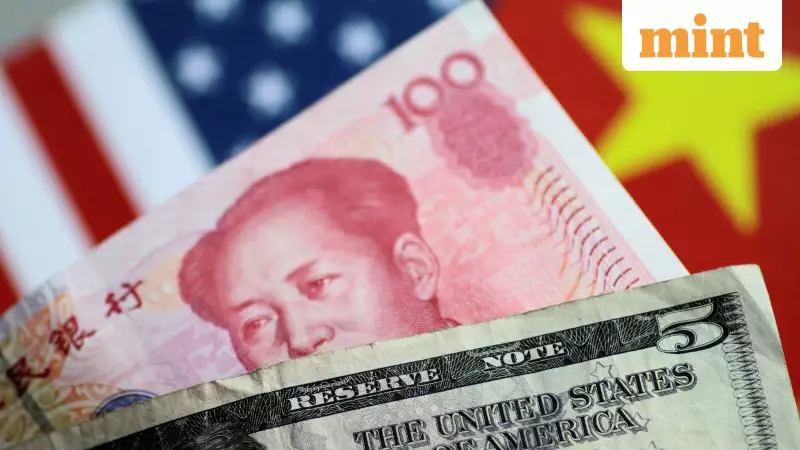
China's economic transformation has created an unexpected crisis as millions of middle-class citizens find themselves drowning in debt. What began as a story of prosperity has turned into a tale of financial struggle for many Chinese households.
The Rising Tide of Household Debt
China's remarkable economic growth over the past two decades created a property-owning, entrepreneurial middle class that transformed the country's urban landscape. This development significantly boosted consumption in the world's second-largest economy, with retail sales growing by 6.4% year-on-year in May - the fastest pace since December 2023.
However, this prosperity came with hidden costs. Government policies that cautiously promoted borrowing in past years have contributed to a dramatic increase in household debt. The numbers tell a startling story: household debt as a proportion of China's GDP has surged from less than 11% in 2006 to over 60% today, approaching levels seen in developed countries.
The Human Cost of Financial Overextension
The scale of the debt problem is staggering. According to research consultancy Gavekal Dragonomics, between 25 million and 34 million people may currently be in default. When including those merely in arrears, the total could reach 61 million to 83 million individuals, representing 5-7% of China's population aged 15 and older.
These figures have doubled over the past five years, with the situation potentially worsening amid high youth unemployment and a continuing property slump. The psychological impact is severe, with some debtors contemplating suicide while others attempt to monetize their financial struggles by becoming "debt influencers" on social media.
Property Dreams Turn to Financial Nightmares
Real estate has been at the center of China's debt crisis. Borrowing for housing constituted 65% of household loans last year, excluding business-purpose loans. Most mortgage lending comes from government-owned banks, which face challenges in recovering payments from struggling borrowers.
The property market collapse has created a cascade of problems. China Index Academy reports that 366,000 foreclosed residential properties were listed for auction last year, slightly up from 364,000 in 2023. The actual number of people failing to pay mortgages may be growing much faster.
Regulators are walking a tightrope - they're wary of aggressive repossessions involving primary homes due to concerns about triggering public protests, while banks worry that auctioning properties in today's depressed market may not recoup the mortgage value.
Multiple Pathways to Debt
The debt crisis affects various groups differently. Spendthrifts represent one category, like Lily, a Shanghai millennial who accumulated 30,000 yuan ($4,200) in debt to online lenders after her software company stopped paying wages due to cashflow problems.
Another significant group consists of entrepreneurial borrowers. Ms. Bai from Hangzhou exemplifies this trend, having taken personal loans totaling millions of yuan to invest in her education business. At its peak, her company organized cramming classes for 50,000 to 60,000 students across 30-plus tutoring centers, generating annual revenue of 100-200 million yuan.
The double blow of COVID-19 lockdowns and a political crackdown on crammers destroyed her business, forcing her to sell her house and car to repay debts. "The tough part was dealing with the pressure dogs hired by online lenders," she explains, referring to aggressive debt collectors who repeatedly called her, her friends, and relatives.
Systemic Challenges and Limited Solutions
China's approach to debt resolution remains underdeveloped. Regulations governing the debt-collection industry are new and unevenly enforced. While the government banned agencies from threatening violence, using abusive language, or calling at anti-social hours last year, complaints suggest little change in collectors' threatening behavior.
The lack of comprehensive personal bankruptcy legislation has fueled the growth of online loan-sharks offering high-interest credit to desperate defaulters. Shenzhen became the first city to introduce individual bankruptcy law in 2021, but by September 2024, courts had accepted only about 10% of the 2,700 applications for bankruptcy protection.
Online support groups have emerged as crucial resources for struggling debtors. The "Debtors Alliance" on Douban social network has grown to over 60,000 members since its founding in 2019. Users frequently discuss "shesi" or social death - the destruction of relationships caused by debt collectors' relentless contact bombing.
While Chinese households maintain a buffer with savings relative to disposable income at nearly 32% in 2023 - far higher than America's less than 3% before the 2007 financial crisis - the debt burden increasingly inhibits middle-class spending and undermines the belief in ever-rising prosperity that the Communist Party considers crucial to maintaining power.





